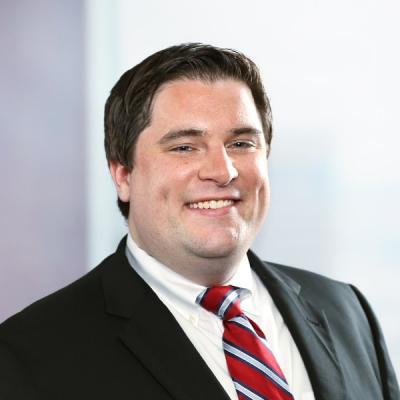
Employment
Viewpoints
Filter by:
The Affordable Care Act’s Reporting Requirements for Carriers and Employers (Part 7 of 24): Mergers and Acquisitions
August 31, 2015 | Blog
When it comes to mergers and acquisitions involving at least one applicable large employer (ALE), the substantive rules governing employer shared responsibility (under Internal Revenue Code § 4980H) and the corresponding reporting rules (under Internal Revenue Code § 6056) share at least one thing in common: we don’t yet know how they work.
Read more
NLRB Adopts New Joint Employer Test: Companies That Kind of, Sort of, Maybe Someday Could Exercise Control Over Employees Can Be Joint Employers
August 28, 2015 | Blog | By Erin Horton
The NLRB dropped a major bomb on businesses in subcontracting, franchising, and temporary staffing relationships yesterday, adopting a new—very, very broad—definition of joint employment.
Read more
Ashley Madison Data Dump Creates Risk for Employers
August 28, 2015 | Blog
My colleague Wynter Deagle recently wrote a post on Privacy & Security Matters discussing some implications and lessons from the recent Ashley Madison hack and data dump. It's important to understand the increased risk for employers this data dump created.
Read more
A Pick Off Play Strikes Out at the First Circuit, But There Are More Innings to be Played; the Debate Over Rule 68 Offers of Judgment Continues
August 26, 2015 | Blog | By Kevin McGinty
Sorry, we couldn’t resist mixing our baseball metaphors. In Bais Yaakov of Spring Valley v. ACT, Inc., the First Circuit affirmed a district court decision refusing to dismiss a putative class action as moot based on an unaccepted offer under FRCP 68 that defendant claimed would provide complete relief to the plaintiff.
Read more
LGBT Advocates Shift Focus to Anti-Bias Law (The San Diego Daily Transcript)
August 24, 2015 | Blog
My colleague Jennifer Rubin was quoted in The San Diego Daily Transcript article entitled, “LGBT Advocates Shift Focus to Anti-Bias Law” that discussed LGBT supporters’ aim to pass a law offering greater non-discrimination protections.
Read more
The Affordable Care Act’s Reporting Requirements for Carriers and Employers (Part 6 of 24): Reporting Group Health Plan Opt-Out Arrangements under Code § 6055
August 24, 2015 | Blog
Under a common strategy for controlling group health care plan costs, employers sometimes adopt arrangements under which an employee is offered cash as an incentive to waive coverage. These arrangements are colloquially referred to as “opt-out plans” or “opt-out arrangements.”
Read more
It's 2015: Do You Know Where Your Workplace Is? [VIDEO]
August 21, 2015 | Blog | By Jennifer Rubin
Where, when, and how we work has changed profoundly since I started practicing law but employment and privacy laws have not evolved to keep up with technological change and the reality of the “everywhere” workplace.
Read more
As we reported last week, the IRS recently issued draft 2015 Instructions for Forms 1094-C and 1095-C. These instructions are of interest to applicable large employers who must report their compliance with the Affordable Care Act’s (ACA) rules governing employer shared responsibility.
Read more
Third Circuit Joins Sister Courts in Finding Suspension with Pay is not an “Adverse Employment Action” Within Meaning of Discrimination Laws
August 19, 2015 | Blog | By David Katz
In Precia Jones v. SEPTA, the Third Circuit Court of Appeals last week joined six sister courts in finding that a suspension with pay typically does not constitute an “adverse employment action” within the meaning of Title VII and analogous Pennsylvania law.
Read more
No Golden Parachute (Inside Higher Ed)
August 19, 2015 | Blog
My colleague Ray Cotton was quoted in an Inside Higher Ed article entitled, “No Golden Parachute,” which described the University of Illinois controversial decision to reject paying the $400,000 bonus to the departing chancellor Phyllis Wise.
Read more
Union Ruling Underlines NCAA’s Evolution (New York Times)
August 19, 2015 | Blog
My colleague Tyrone Thomas was quoted in a New York Times article entitled, “Union Ruling Underlines NCAA’s Evolution” addressing The National Labor Relations Board’s ruling that Northwestern football players could not unionize.
Read more
NLRB Calls Out the Punt Team and Declines Jurisdiction Over Northwestern University Football Players
August 18, 2015 | Blog
In a mild surprise given the current constitution of the Board (read – majority appointed by President Obama), the NLRB declined to assert jurisdiction in ruling on the petition of Northwestern University’s scholarship football players to unionize.
Read more
7th Circuit Latest Court to Weigh in on Rule 68 Offers of Judgment; Holds That They Don’t Moot a Case; But With Supreme Court Decision Looming Next Term, Precedent May Prove Short-Lived
August 14, 2015 | Blog | By Kevin McGinty
A Seventh Circuit panel recently overruled its own precedent to hold that a defendant’s offer of full compensation in an offer of judgment under Federal Rule of Civil Procedure 68 does not moot the litigation.
Read more
Reminder: ABA Blawg 100 Amici Nominations Due Aug. 16
August 13, 2015 | Blog
We are pleased to report that Employment Matters was recently ranked as the No. 1 Employment Law Blog and the No. 10 overall Legal Blog in LexBlog’s AmLaw 200 Blog Benchmark Report, which you can read here.
Read more
Employer Win in California – Say What??? Stress From Working Under Particular Supervisor is Not a Disability
August 11, 2015 | Blog | By George Patterson
Over the course of a career many workers experience the displeasure of dealing with a difficult supervisor — the type of individual whose mere presence in the workplace is a source of dread and whose name inspires feelings of fear and loathing whenever it appears on a subordinate’s caller ID or the sender line of an email.
Read more
First Circuit Says Plaintiffs Cannot Prevail on Location-Based Discrimination Claims Based on a Disparate Impact Theory
August 10, 2015 | Blog | By Dan Long
Recently, the First Circuit Court of Appeals held that former employees of a FEMA call center could not proceed in their Title VII location-based disparate impact and retaliation claims against the agency.
Read more
The Affordable Care Act’s Reporting Requirements for Carriers and Employers (Part 4 of 24): Highlights from the Draft 2015 Instructions for Forms 1094-C and 1095-C
August 10, 2015 | Blog
The IRS recently issued draft 2015 Instructions for Forms 1094-C and 1095-C (“2015 Instructions”).
Read more
Massachusetts State Court Holds Employee Cannot Recover Treble Damages on Late Wage Payments
August 7, 2015 | Blog
Can an employer escape a treble damage award under the Massachusetts Wage Act where it makes a late payment of final wages to a fired employee after the employee filed a wage complaint with the state Attorney General but before the employee filed a complaint with the court? That is the question which a Massachusetts Superior Court recently answered in the affirmative.
Read more
Corporate Divorce Series: The Courtship of Employment Negotiation
August 7, 2015 | Blog | By Jennifer Rubin
Yes I realize that had my Corporate Divorce series progressed in a linear way, I would have started with The Courtship instead of The Break Up, but employment law metaphors are sometimes unpredictable. In my defense, I note that if you end up in divorce, you must have started with marriage, so there is a certain logic to this after all.
Read more
SEC Finalizes the CEO Pay Ratio Rule – Additional Executive Compensation Disclosure for Public Companies Beginning in 2017
August 7, 2015 | Blog
Our colleague, Pam Greene, wrote an excellent post on our sister blog, Securities Matters, on the SEC's final rule requiring public companies to disclose the ratio of their CEO"s annual total compensation to that of the median annual total compensation of all company employees.
Read more
Explore Other Viewpoints:
- Data Centers & Digital Infrastructure
- AI: The Washington Report
- Antitrust and Federal Regulation
- Appellate
- Arbitration, Mediation & Alternate Dispute Resolution
- Artificial Intelligence
- Awards
- Bankruptcy & Restructuring
- California Land Use
- Cannabis
- Class Action
- Complex Commercial Litigation
- Construction
- Consumer Product Safety
- Corporate Governance (ESG)
- Cross-Border Asset Recovery
- DEI Legal Developments
- Debt Financing
- Direct Investing (M&A)
- Diversity
- EB-5 Financing
- Education & Nonprofits
- Employment
- EnforceMintz
- Environmental (ESG)
- Environmental Enforcement Defense
- Environmental Law
- Environmental, Social, and Corporate Governance (ESG)
- FDA Regulatory
- FDA in Flux
- False Claims Act
- Federal Circuit Appeals
- Financial Institution Litigation
- Government Law
- Growth Equity
- Health Care
- Health Care Compliance, Fraud and Abuse, & Regulatory Counseling
- Health Care Enforcement & Investigations
- Health Care Transactions
- Health Information Privacy & Security
- IP Due Diligence
- IPRs & Other Post Grant Proceedings
- Immigration
- Impacts of a New US Administration
- Insolvency & Creditor Rights Litigation
- Institutional Investor Class Action Recovery
- Insurance & Financial Services
- Insurance Consulting & Risk Management
- Insurance and Reinsurance Problem-Solving & Dispute Resolution
- Intellectual Property
- Investment Funds
- Israel
- Licensing & Technology Transactions
- Life Sciences
- Litigation & Investigations
- M&A Litigation
- ML Strategies
- Managed Care
- Medicare, Medicaid and Commercial Coverage & Reimbursement
- Mergers & Acquisitions
- Patent Litigation
- Patent Prosecution & Strategic Counseling
- Pharmacy Benefits and PBM Contracting
- Portfolio Companies
- Privacy & Cybersecurity
- Private Client
- Private Equity
- Pro Bono
- Probate & Fiduciary Litigation
- Products Liability & Complex Tort
- Projects & Infrastructure
- Public Finance
- Real Estate Litigation
- Real Estate Transactions
- Real Estate, Construction & Infrastructure
- Retail & Consumer Products
- Securities & Capital Markets
- Securities Litigation
- Social (ESG)
- Special Purpose Acquisition Company (SPACs)
- Sports & Entertainment
- State Attorneys General
- Strategic IP Monetization & Licensing
- Sustainable Energy & Infrastructure
- Tax
- Technology
- Technology, Communications & Media
- Technology, Communications & Media Litigation
- Trade Secrets
- Trademark & Copyright
- Trademark Litigation
- Unified Patent Court (UPC)
- Value-Based Care
- Venture Capital & Emerging Companies
- White Collar Defense & Government Investigations
- Women's Health and Technology















